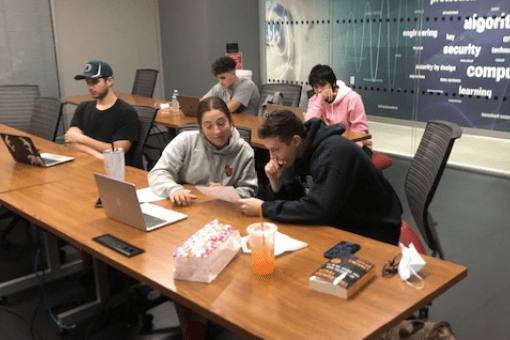By Keith Cozine, Ph.D.
Associate Professor
One of my primary responsibilities as an educator is preparing students to be successful when they enter the workforce. As a faculty member in the Homeland Security programs at St. John’s many of my students are looking for careers in the intelligence field. One of the major problems in the Intelligence Community (IC) is ethnocentrism in intelligence analysis. Ethnocentrism produces many challenges in cognition, analysis, and collection that many analysts may not even recognize. Most significant are manifestations of mirror image biases and institutional biases that leave gaping cognitive holes ultimately leading to intelligence failure. Perhaps one solution to this problem is increasing the cultural intelligence of the potential future IC workforce.
Cultural intelligence has been defined as an outsider’s seemingly natural ability to interpret someone’s unfamiliar and ambiguous gestures the way that person’s compatriots would, but the same concept can be applied to intelligence analysis and the ability to better understand the impact of culture on analysis of particular targets of analysis. One possible tool to increase the cultural intelligence of a future IC workforce is the incorporation of the Global Online Learning Exchange (GOLE) or virtual exchange programs with undergraduate intelligence courses. By employing a wide variety of technologies and educational pedagogy, virtual exchanges make it possible for every student to access high-quality international and cross-cultural education without the expense of traveling abroad. This is why I incorporate GOLE as an important component of my undergraduate course HLS 1019 Homeland Security Intelligence and Counterterrorism.
In the course, we use a table-top exercise that requires the students to apply the course material to a real-life scenario. In the exercise, one group of students is required to play the role of terrorists plotting to attack a fictional subway system. The second group of students plays the role of a security team tasked with putting in a security strategy to prevent an attack from occurring. The decisions made by each team increases or decreases their probability of success. After the terrorist group tries each attack, the teams switch sides and roles. In the fall 2021 semester, this exercise was conducted jointly with students in a similar undergraduate course at Edith Cowan University in Perth, Australia. The table-top exercise was co-conducted via Webex over the course of five weeks, with a mix of students from both schools on each team. The issue of ethnocentrism was slightly diminished because of some of the cultural and linguistic similarities. However, Australia and the United States are two different cultures even though they share a common language.

There were several objectives this project and exercise were trying to achieve. These included: comparing the counterterrorism and intelligence strategies of the United States and Australia; developing a comprehensive counterterrorism strategy that accounts for limited resources while balancing the need for security and accessibility through collaboration with individuals from a different country; gaining a greater understanding of the political, social and cultural differences and similarities between the United States and Australia; and finally, feeling comfortable enough to critique their own performance and the performance of their fellow students in the table-top exercise despite their different cultural backgrounds.
Despite the cultural and linguistic similarities between the two countries; it was clear that the students did have stereotypes and misconceptions about each other that seemed to diminish as the exercise progressed and a greater understanding and camaraderie developed between team members. In short, I would say that the experience of the students from both schools, the participating faculty at Edith Cowan, and myself was a rewarding one and did in fact raise the cultural intelligence of the participants. I greatly look forward to repeating the GOLE table-top exercise in the fall 2022 semester, and many more to come.
Related News
Entangled Across Borders: Celebrating 100 Years of Quantum Physics Through a Global Classroom
In Spring 2025, I implemented the first iteration of the Global Online Learning Exchange (GOLE) in my Scientific Inquiry class at St. John’s University, a core class focused on how scientists make...
Grazie, Papa Francesco: Notes on the Passing of Pope Francis
Loreal is a junior at St. John’s University majoring in International Management with a minor in Social Justice : Theory and Practice in the Vincentian Tradition . She is also the President of the...
Snapshots: New Students from Around the World
The St. John’s community specializes in being a welcoming, friendly, accepting place and so we are excited to introduce you to some of our new international students. We hope these students will...
